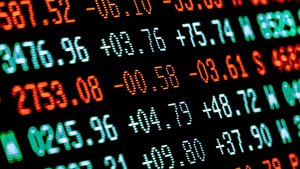Future Of London's AIM Market At Risk As Delistings Surge
New listings on AIM have struggled to recover from their pre-Covid levels.

The future of London’s Alternative Investment Market (AIM) is in a precarious position, with numerous companies considering delisting, according to Bobby Kalar, CEO of energy supply firm Yu Group, This Is Money reported.
Speaking to shareholders on Tuesday, Kalar expressed frustration over the lack of engagement from large institutional investors and the perceived undervaluation of the company’s strong financial performance.
Kalar’s concerns come amidst a wider trend of declining confidence in the AIM, which has faced weak returns, a rise in delistings, and a slowdown in new listings. These issues have raised questions about the market's effectiveness in supporting small companies' growth, leading many firms to reassess the benefits of remaining listed.
"Many AIM companies are questioning the market’s future and the desirability of remaining listed," Kalar said, adding that the lack of recognition for AIM-listed firms’ achievements is contributing to the dissatisfaction.
London’s AIM market, historically seen as a dynamic platform for high-growth companies, has struggled to maintain its appeal in recent years. Factors such as undervaluation, poor liquidity, and the market’s inability to attract institutional investment have undermined its credibility.
The FTSE AIM 100, which tracks the performance of the market’s largest companies, has grown by just 3% in the last year and remains 30% below its pre-pandemic level. Similarly, the broader AIM All-Share index has experienced a comparable downturn.
Efforts by both the government and industry leaders to revitalise London’s capital markets have largely focused on the more prominent FTSE 100 and FTSE 250 indices, leaving AIM-listed firms to face their challenges with limited support.
The London Stock Exchange Group continues to promote AIM as the world’s leading market for entrepreneurial businesses, emphasising its access to diverse investors and a supportive advisory community. However, for many, the market’s lack of liquidity has resulted in sluggish share price growth and volatile price swings in response to company news.
New listings on AIM have also struggled to recover from their pre-Covid levels, despite a temporary boost in 2021 following the easing of pandemic restrictions. Data from EY shows that only four companies listed on AIM in the first half of 2024, compared to nine in 2023 and significantly more in the years leading up to the pandemic.
Yu Group, a fast-growing supplier of energy and utility solutions to UK businesses, has seen strong financial results, with revenues increasing by 60% year-on-year to £312.7 million in the first half of 2024.
The company’s adjusted earnings surged 49% to £20.4 million, driven by rising demand for its smart metering solutions. Despite these achievements, Kalar voiced disappointment over the limited institutional recognition and engagement, which he believes is reflective of broader dissatisfaction with the AIM.
"The AIM market's future is delicately balanced and won’t be helped if the current government further punishes and disincentivises entrepreneurial high-growth companies," Kalar warned.
Kalar’s remarks come at a time when London’s status as a destination for public listings is under pressure, with some companies opting for private equity buyouts or moving their listings to rival markets.
AIM’s long-term sustainability is now in question, with both investors and companies expressing doubts about the market’s ability to facilitate growth in the current climate.
Thanks for signing up to Minutehack alerts.
Brilliant editorials heading your way soon.
Okay, Thanks!


